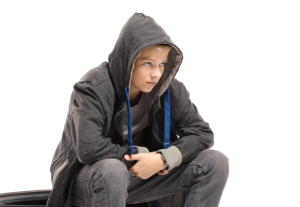by
Thomas Dworetzky, Contributing Reporter | July 14, 2015
Being a teenager is no walk in the park for anyone, but a new study suggests adding a battle with cancer to those bumpy adolescent years — even when successfully treated — can have a profound impact on a child's future.
Dr. Pinki Prasad, lead researcher and a pediatric cancer specialist at the Louisiana State University Health Sciences Center in New Orleans, found that the illness can have significant psychosocial impact on teenagers, which manifests itself later in adult life.
Teen survivors were more depressed and anxious than their siblings, and less likely to finish college, work full time, be married or even live independently, according to Prasad and her colleagues.



Ad Statistics
Times Displayed: 656
Times Visited: 5 Fast-moving cardiac structures have a big impact on imaging. Fujifilm’s SCENARIA View premium performance CT brings solutions to address motion in Coronary CTA while delivering unique dose saving and workflow increasing benefits.
“Cancer diagnosis during adolescence has the potential to disrupt the growth process that is necessary for adulthood, so our team felt it was important to try and characterize what obstacles these survivors are facing,”
Prasad told Reuters.
The results of the study were most likely linked to a teenage cancer survivor's "neurocognitive symptoms", which largely affect learning, memory retention, perception and even social cognition, suggests
a report on the study in the Parent Herald.
The study showed that cancer occurring during adolescence and early young adulthood, Prasad noted, "can impact neurocognitive and emotional function and disrupt vocational attainment."
There has been less research on the impact of cancer in teens than in earlier childhood, which is one of the reasons behind this current study, said Prasad.
The researchers looked at data on 2,589 survivors diagnosed with the illness between the ages of 11 and 21.
Those studied were at the time of the research predominantly over thirty. They were asked and self-reported about their lives and emotional and cognitive functioning.
One caveat about drawing too many conclusions from this study, according to a physician not involved in this research, is that treatments have changed since these survivors were treated. Noted Heather Conklin, an associate faculty member at St. Jude Children’s Research Hospital in Memphis, Tennessee, the findings “may be less applicable for those patients receiving modern therapy.”
Teen cancer can be particularly disruptive because those years are so difficult already, Dr. Prasad told Reuters. “Cancer treatment at this time interferes with development of relationships, academic achievement, participation in social activities and the development of autonomy from parents.”
The findings were published in in the
Journal of Clinical Oncology.

